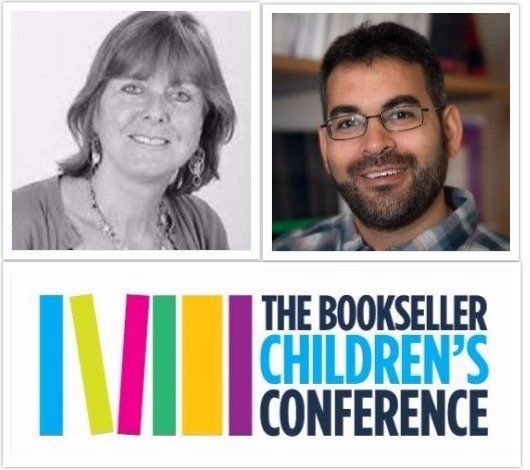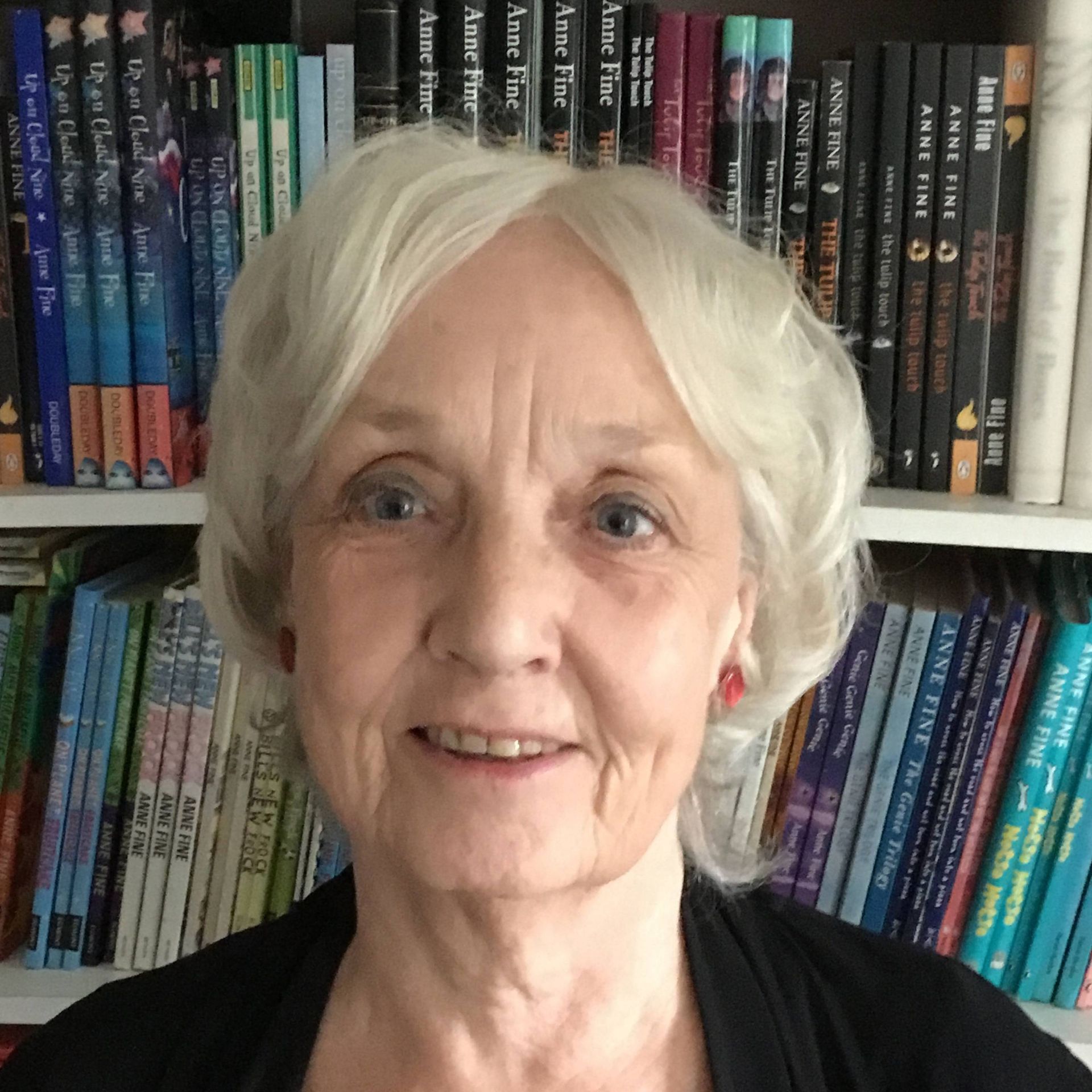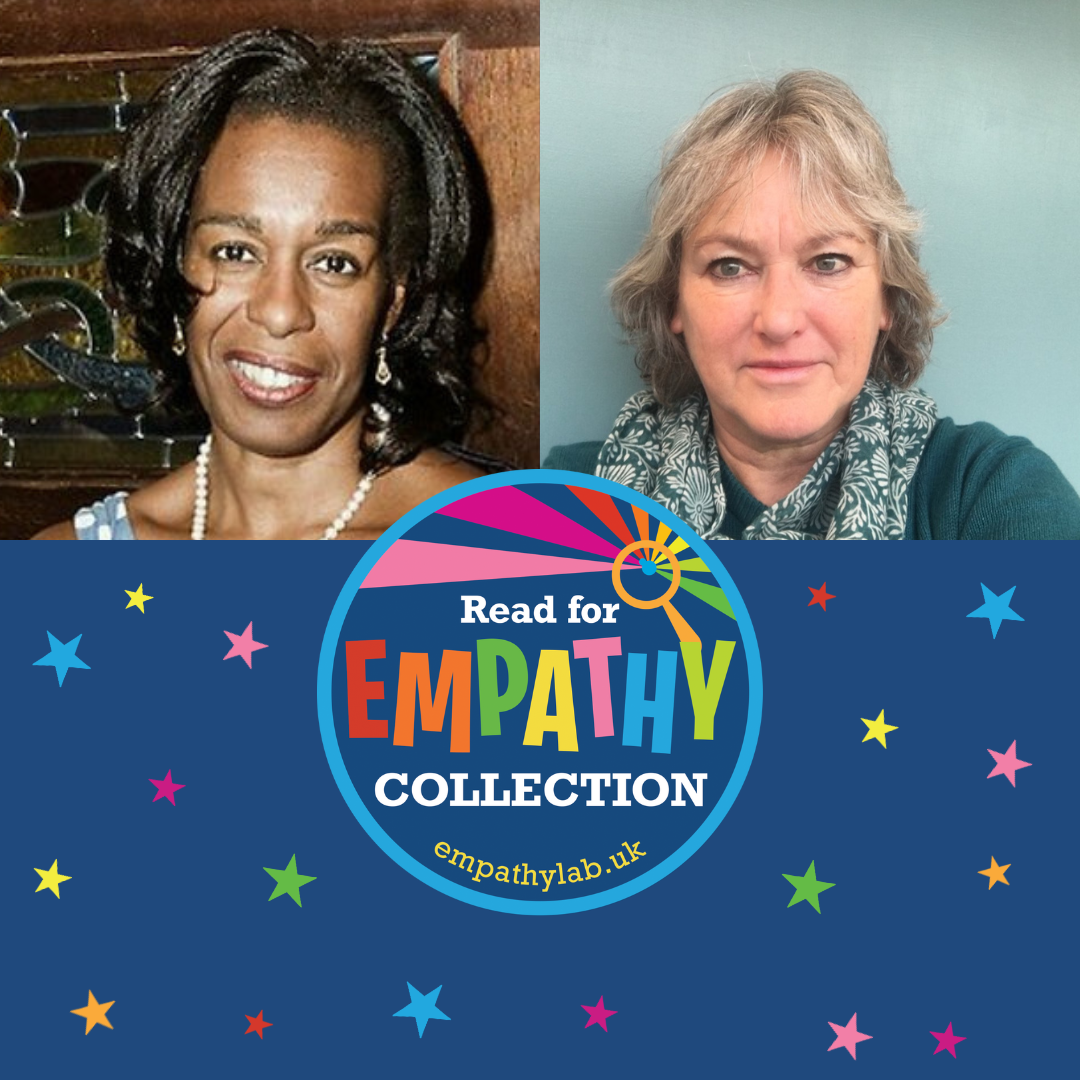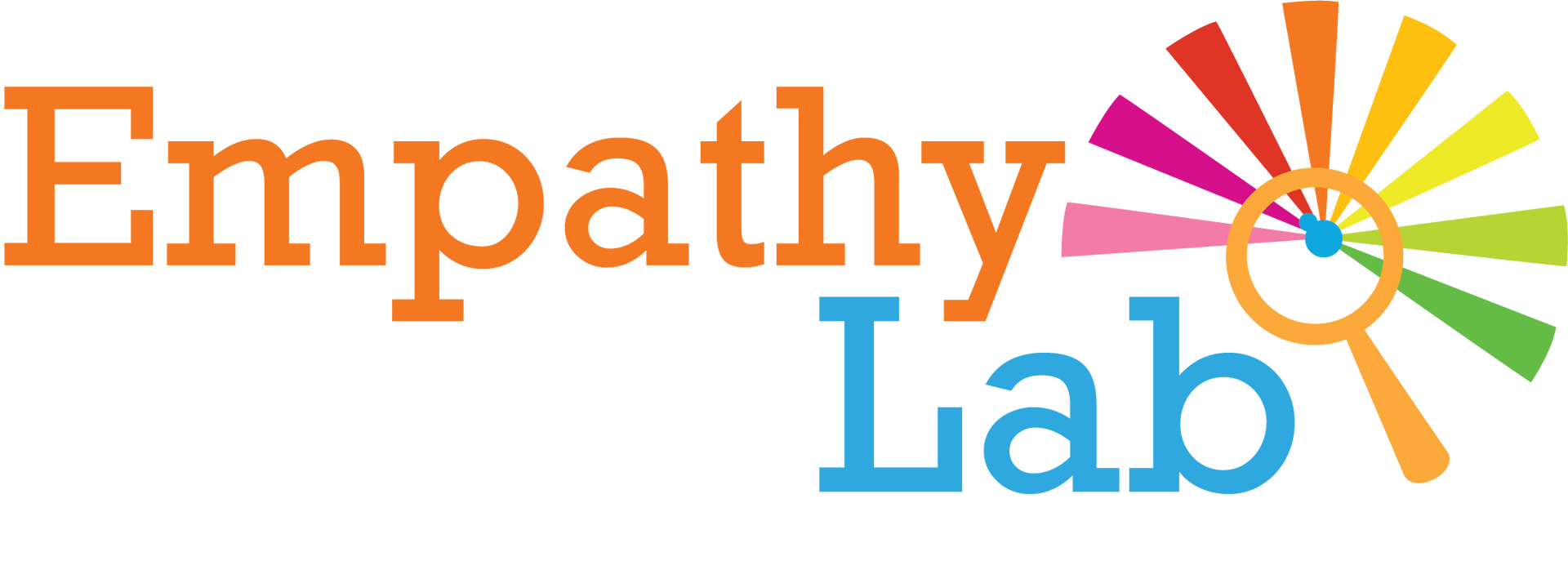Bookseller Children's Conference
- By EmpathyLab
- •
- 10 Oct, 2017
- •

Transcript of Miranda McKearney, OBE (EmpathyLab Founder) and Professor Robin Banerjee's (Psychology Department, University of Sussex ) speech given at The Bookseller Children's Conference (London, 26 September 2017)
Robin Banerjee:
I want to start our session with my perspective on why I think the topic of empathy deserves your attention, perhaps now more than ever.
As a developmental psychologist, I have a primary interest in the well-being and mental health of children and young people. Unfortunately, recent news stories highlight challenges in this area right through the lifespan, from concerns about “UK youth suffering low mental wellbeing”, to a general sense that “universities need to put student mental health first”, right through to worries in the workplace, where one recent report suggests that “one in three sick notes are for mental health problems”.
There is good evidence that a lot of the problems might begin in childhood. And it’s not hard to see why. Children can experience a multitude of stresses, from family conflicts to stresses about school work and the testing culture. And one area in which I have done a lot of research relates to the child’s peer group. Problems such as bullying – not just physical but also relational (e.g., excluding others, or spreading rumours) – can have major impacts on children’s lives. And I think we are all more aware now of how social media has the potential to exacerbate these problems.
Coupled with these concerns are a whole range of global issues that children might encounter: things like the effects of climate change, highly polarised debates about immigration and racism, worldwide terrorism, and homelessness on local streets.
Now, I promise I’m not trying to put a huge downer on this wonderful event! But I want to illustrate why I think the need for empathy is so important – perhaps especially now. In fact, many psychologists and educators are flagging the importance of so-called ‘soft skills’ – things like emotional literacy, and character and values (such as resilience, grit, but also care and compassion). There are lots of terms out there and I’m not going to get into the nuances of all of these, but I want to point out that one key construct binding them all together is EMPATHY. If you are interested in how you can foster children’s well-being and resilience, then there is good evidence that empathy should be a key priority.
This is not about encouraging children to be completely wrapped up in other people’s feelings, becoming biased and ‘emotional’ instead of rational and objective. In fact, empathy is pretty complex. Of course, there is an important emotional dimension to it, but we also need to think about how children are actually behaving, how they are thinking (cognition), what goals are driving them (motivation), and what their social relationships are like.
Many researchers – using cutting edge research techniques from neuroscience, as well as experiments, surveys, and observational studies – now distinguish between at least three major aspects of empathy:
1. one part of this is how you react emotionally to other people’s displays of emotions – such as fear, or distress, or indeed positive emotions such as happiness and joy.
2. Another part is the accuracy and depth of your cognitive insight into other people’s thoughts and feelings – how are other people (who might be quite different to you) likely to see and experience the world?
3. And third – quite crucial as it turns out – is what you actually do with those emotional and cognitive reactions: things like comforting, helping, and supporting others. The translation of empathic thoughts and feelings into behaviour requires a motivation of care and compassion within one’s relationships.
I hope it’s clear that an imbalance could be seriously problematic. If you constantly feel someone else’s distress but have very limited understanding, you would probably be a nervous wreck! But if you understand other people’s thoughts and feelings well but you behave in a callous way because you don’t feel the distress or you simply don’t care, you could be a manipulative sociopath! But put all three together, and you’ll find that something rather special can happen.
And this is where I hand over to Miranda to tell you more about EmpathyLab and why we think all of you people here have a role to play!
Miranda McKearney:
Thanks, Robin. We’re not born with a fixed empathy quotient. Our brains are plastic and 98% of us are capable of improving our empathy skills, and excitingly, scientists are now able to show that reading is a potent tool.
Research studies are showing that the brain reacts to fictional worlds as if they were real, and this helps us practice our social skills. As we read, our brains are tricked into thinking we’re genuinely part of the story. So the empathic emotions we feel for characters wires our brains to have the same sort of sensitivity towards real people.
For me, that’s explosive stuff, and with four fellow founders, I have started a new organisation called EmpathyLab. We want to see an empathy revolution, and to do it through literature.
I suggest it’s explosive stuff for the book world too, because if books are now proven to be empathy building, it gives parents and teachers an added purchasing motivation.
Worldwide, there are no programmes which systematically harness the power of stories to build children’s empathy skills. That’s EmpathyLab’s focus. We support 4-11 year olds, and the Lab bit of our name is deliberate – we’re experimenting, and so far have piloted: a schools programme, new kinds of festival events, and a national Empathy Day. After two years of testing it’s clear we’re on to something big.
On our website you’ll find the impact report of our work with the leadership teams in 14 pioneer primary schools. Together, we’re testing an Empathy Explorers programme which simultaneously builds children’s empathy and literacy skills, and social activism.
One of the schools is in Great Yarmouth, a town with tricky community issues around attitudes to the migrant population. The school focused on empathy, with refugee themed books as their class readers. Local war refugees and Amnesty visited and Year 6 taught empathy lessons right down the school. Author Elizabeth Laird made an electrifying Empathy Day visit, talking about Welcome to Nowhere which she researched in a Syrian refugee camp, resulting in wildly fired up children organised a fundraising sleep out. Troy said: “this was some of my favorite work that we’ve ever done. We’re learning about the real world and we are all part of it. Like, everyone, not just us and the people we know”.
As soon as EmpathyLab started we had the backing of some great children’s authors, and this April we ran a training day for 30 of them. We were blown away by how hungry they were to use an empathy focus to offer more meaningful events, and they saw new opportunities to position their work against wellbeing agendas. And authors say how much they want to do something, horrified by the way our society feels so divided, and the 89% rise in hate crimes in schools.
In June we piloted a new Empathy Day. We were over the moon when the #ReadForEmpathy hashtag started trending on Twitter– there was an outpouring of people welcoming the idea of using books to help us get out of our echo chambers .
By Christmas we’ll be ready to go with a 3 year plan, and we hope that the book world will be major partners. By 2020 we aim to: roll out a schools programme; establish an annual Empathy Day; build a band of 60 trained Empathy Authors, and launch Empathy Explorers as a national children’s programme.
And we so hope you’ll get involved! There are real commercial opportunities and surely there’s a massive moral imperative. None of us can stand idly by while hate crimes rise - we need that empathy revolution! Your books can help develop children who challenge prejudice, build community and embrace diversity.
If you’re a publisher, do get in touch to talk through these opportunities:
- Put your books forward for a new Read For Empathy Guide we are developing with Peters Library Service
- Help us identify the right writers to join that band of 60 trained Empathy Authors
- Include us in your author tour planning
- For Empathy Day on 12 June next year…inspire your authors to get involved, join in the social media campaign and maybe become a workplace pilot
- Support us as an organisation: we offer a powerful Corporate Social Responsibility focus
-
And I’ll finish with ten year old Layla, whose mind-set has been completely changed by her school’s empathy work - "I thought that refugees were different to us and now I don't." I think that says it all. Thank you.

Why has the sheer importance of empathy come to the fore in recent years? Why do we care so much about a concept that had seemed to be left to itself for so long?
Perhaps because there has been so much change and upheaval for our young people in recent years, leaving so many isolated from what we might term ‘real’ contact with others. Lockdown was for many a disaster. The proliferation of phones hasn’t helped. Financially stretched families are often starved of time that can be spent in casual, easy, contact with one another.
So gaining an understanding of others from fiction has become more and more important. Children have always learned from the books and stories they are offered. From the fairy tales, children who lived in an elemental world without luxuries or social safety nets learned the virtues that were so necessary back then to survival: courage, resourcefulness, endurance, quick wits, kindness to strangers.
Our own young people live more tightly under separate roofs, and we have seen the language of books change accordingly - to Mum, the babysitter, playgroup, park, baby sister, Dad’s girlfriend, the bully, happy, worried, sad. It’s the language of relationships and emotions now, and understanding and compassion liberate. They have become the twenty-first century equivalent of Hansel and Gretel’s pebbles gleaming in the moonlight to show the way out of the dark forest.
Frank Flanagan once said good writers “structure, explain and evaluate the experience of childhood and empower the child to come to terms with it. They enable the child to lead a full life."
How? Partly by quite unconsciously increasing self-knowledge and self-awareness. A young reader can’t help but see characters in books unconsciously as if in a mirror. "I'm not like that." "I worry about that too." "I would have been braver”, “slower to catch on”, “tempted to be more mean”. And when this sense comes of no longer being the only one in the world to have this problem, or to feel that way, the child not only comes to realise that they are not alone, but also to gather insights into how other people deal with the same worries or tackle the same problems. In short, they learn, vicariously, how other people tick.
We have so many young people who, it seems, sometimes as a result of their upbringing, often simply by nature, have somehow failed to acquire the tools to begin to think about their own situation. Through fiction they can often begin, safely, to explore the more subtle aspects of life around them - an insight into someone else's life. A child can share desk space with someone else all year and yet learn less about them than about a character in one short book that’s read to them at night. I try to show this in my novel On the Wall , where, over the school year, Finley’s quite exceptional gift for tranquillity and self-acceptance in an anxiety-inducing world causes one fellow pupil after another to look more deeply into themselves, and learn how to rebalance their own way of thinking to become, in the process, calmer, happier, or more accepting.
We all want, for our young people, peace of mind. An excellent start is to explore Lauren Child's wonderful 'Staring into Space' project: https://staringintospace.me/
Then, steep them in fiction. And where better to find the
best than at the EmpathyLab itself?
You can purchase Anne's book, On the Wall,
here

The collection consists of 65 books for 3-16 year olds, each chosen for its unique contribution in building young people’s empathy.
The primary collection for 3-11 year has 40 books; the secondary collection features 25 books for 12-16 year olds.

